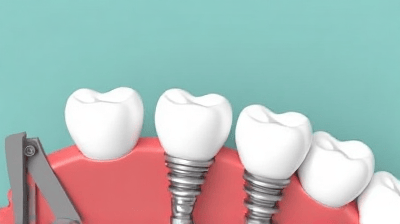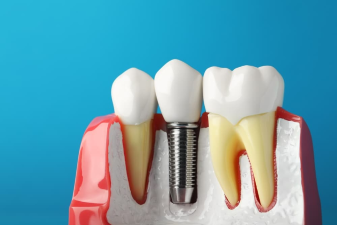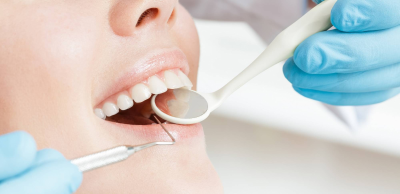Dental implants have emerged as a popular and effective solution for replacing missing teeth. They provide a stable, long-term option that not only restores the functionality of your mouth but also enhances your smile aesthetics. However, many patients often wonder about the longevity of dental implants. How long do they last? What factors influence their lifespan?

Understanding Dental Implants
What Are Dental Implants?
Dental implants are artificial tooth roots that are surgically placed into the jawbone. They serve as a foundation for replacement teeth, known as crowns. Implants are typically made from titanium, a biocompatible material that allows them to integrate with the jawbone through a process called osseointegration.
Types of Dental Implants
-
Endosteal Implants: The most common type, these are placed directly into the jawbone. They are typically shaped like small screws and can hold one or more prosthetic teeth.
-
Subperiosteal Implants: These implants are placed on or above the jawbone but underneath the gum tissue. They are often used for patients with insufficient bone height and are less common than endosteal implants.
How Do Dental Implants Work?
Once the dental implant is placed in the jaw, it undergoes osseointegration, where the bone grows around the implant, securing it in place. After the healing process is complete, a crown is attached to the implant, restoring the function and appearance of the natural tooth.
Longevity of Dental Implants
Average Lifespan of Dental Implants
On average, dental implants can last anywhere from 10 to 15 years or more, with many lasting a lifetime when properly cared for. Factors such as individual health, oral hygiene, and lifestyle choices play a significant role in determining how long dental implants will remain functional.
Importance of Maintenance
While dental implants are designed to be durable, maintaining good oral hygiene is essential for their longevity. Regular dental check-ups, proper brushing and flossing, and avoiding harmful habits can significantly impact the lifespan of your implants.
Factors Affecting the Longevity of Dental Implants
Several factors can influence how long dental implants last. Understanding these factors can help you take proactive steps to ensure the longevity of your dental implants.
1. Oral Hygiene Practices
Good oral hygiene is crucial for the health of both your natural teeth and dental implants. Patients with implants should maintain proper oral hygiene to prevent peri-implantitis—a condition similar to gum disease that affects the tissues surrounding the implant. Effective oral hygiene practices include:
- Regular Brushing: Brush your teeth and implants at least twice daily with fluoride toothpaste.
- Flossing: Use implant-specific floss or interdental brushes to clean around the implant and under the crown.
- Antimicrobial Mouthwash: Consider using an antimicrobial mouthwash to help reduce bacteria in the mouth.
2. Dental Care Routine
Regular dental check-ups are vital for monitoring the condition of your implants. Dentists can identify potential problems early and provide necessary care. Recommendations include:
- Biannual Check-ups: Schedule visits to your dentist every six months for professional cleanings and assessments.
- X-rays: Dentists may perform X-rays to monitor the health of the surrounding bone and tissues.
3. Bone Health
The condition of the jawbone is critical for the success of dental implants. Adequate bone density and volume are required to support the implant securely. Factors that affect bone health include:
- Age: As people age, bone density may decrease, impacting the longevity of implants.
- Osteoporosis: This condition weakens bones, making them less supportive of implants. Patients with osteoporosis may require additional therapies or treatments to enhance bone density before implant placement.

4. Lifestyle Choices
Your lifestyle can significantly influence the longevity of your dental implants. Consider the following factors:
- Smoking: Tobacco use can adversely affect healing and increase the risk of complications, such as infection and implant failure.
- Diet: A balanced, nutritious diet supports overall health, including the health of your gums and jawbone. Adequate intake of calcium and vitamin D is particularly essential for bone health.
- Exercise: Regular physical activity promotes overall health and can contribute to better bone density.
5. Health Conditions
Certain health conditions can affect the success and longevity of dental implants. These include:
- Diabetes: Patients with uncontrolled diabetes may face longer healing times and a higher risk of infection, potentially affecting implant longevity. Maintaining good blood sugar control is essential for patients with diabetes.
- Autoimmune Disorders: Conditions like lupus or rheumatoid arthritis can impair healing and may complicate the success of dental implants.
- Medications: Some medications, such as bisphosphonates used to treat osteoporosis, can impact bone remodeling and may necessitate close monitoring by a dental professional.
6. Quality of the Implant
The quality of the dental implant itself plays a significant role in its longevity. Factors influencing implant quality include:
- Material Selection: Implants made from high-quality titanium are more durable and biocompatible than those made from lower-quality materials.
- Manufacturing Standards: Choosing implants from reputable manufacturers with rigorous quality control processes can ensure better outcomes.
7. Placement Technique
The skill and experience of the dental professional performing the implant procedure is crucial. A surgeon with expertise in implant placement is more likely to achieve successful results, leading to better long-term outcomes. Consider the following:
- Training and Experience: Choose a dental professional with specialized training in implantology and a track record of successful procedures.
- Surgical Technique: Advanced surgical techniques, such as guided bone regeneration or sinus lifts, may enhance the positioning and integration of the implant.
The Importance of Follow-Up Care
After receiving dental implants, follow-up care is essential to ensure their longevity. Here are some post-treatment recommendations:
1. Attend Scheduled Appointments
After the initial placement of the implant and the attachment of the crown, regular follow-up appointments are crucial. Your dentist will monitor the health of the surrounding tissues and ensure that the implant integrates properly with the jawbone.
2. Report Any Issues Promptly
If you experience pain, discomfort, or any unusual sensations around your dental implant, contact your dentist immediately. Early intervention can prevent more severe complications.
3. Maintain an Open Dialogue
Communicate with your dentist about any health changes or medications you may be starting, as these can impact the health of your dental implants.
Signs of a Failing Implant
Knowing the signs of a failing dental implant is essential for addressing issues promptly. Symptoms to watch for include:
- Pain or Discomfort: Persistent pain around the implant site that does not improve could indicate a problem.
- Loose Implant: Mobility of the implant may signal bone loss or failure of osseointegration.
- Swelling or Inflammation: Redness, tenderness, or swelling around the implant site may indicate infection or inflammation.
If you experience any of these symptoms, consult your dentist without delay for a thorough evaluation.
Conclusion
Dental implants can be a transformative solution for those with missing teeth, offering a durable and aesthetically pleasing alternative. While the general lifespan of dental implants ranges from ten to fifteen years or longer, various factors influence their longevity.
By understanding these factors—such as maintaining good oral hygiene, addressing health conditions, making healthy lifestyle choices, and choosing a qualified dental professional—you can take proactive steps to ensure the long-lasting success of your dental implants. Should any concerns or issues arise, always consult your dentist to address them promptly, ensuring a healthy and beautiful smile for years to come.



